Jakarta Visioning Workshop
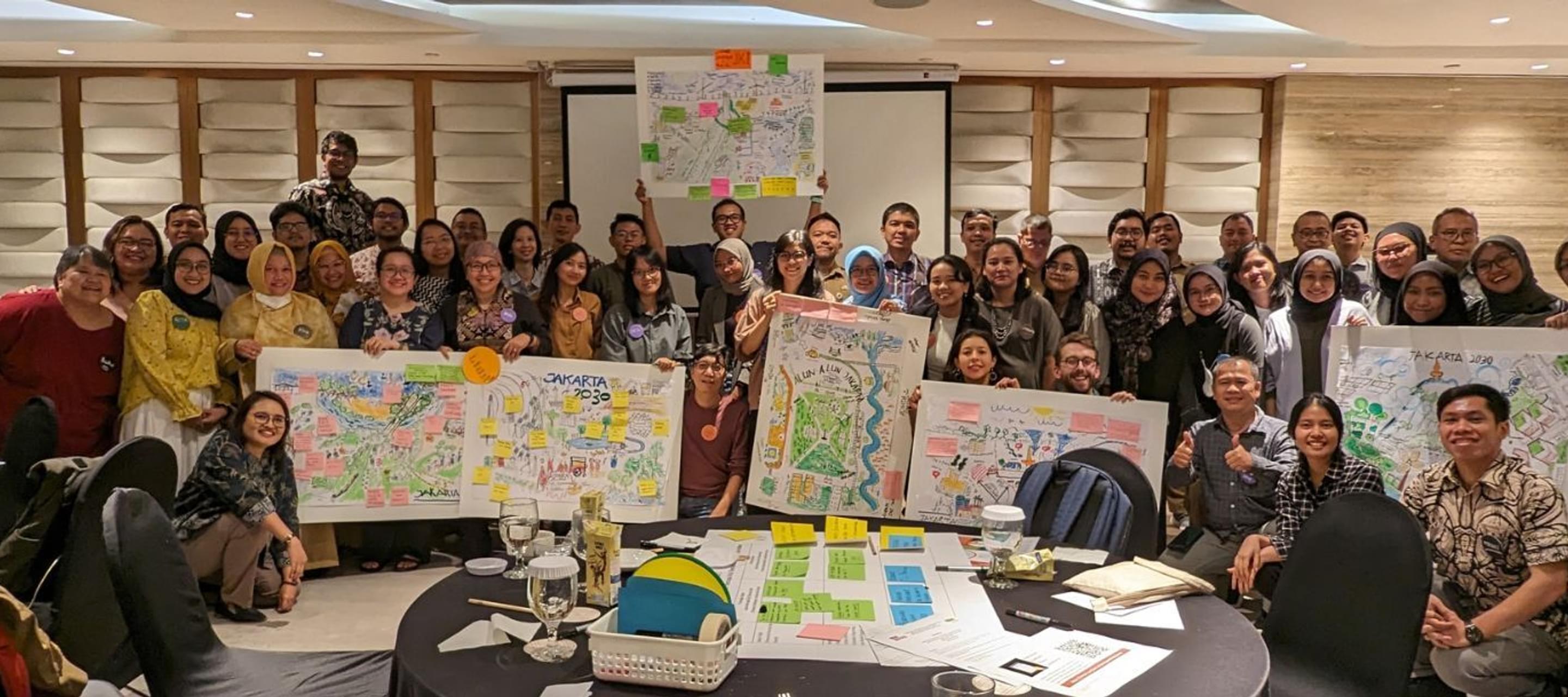
Jakarta is one of the 8 cities of IHRB’s Built Environment research and visioning project “Building for today and the Future: Advancing a Just Transition in the Built Environment”. The IHRB research team conducted a three-month fieldwork mission in Jakarta from July to September 2023 to investigate the status of the just transition in the city and co-create, with local stakeholders, potential pathways to strengthen social justice in climate action in the built environment, through a human rights approach.
This project focuses in four main areas:
- The right to adequate housing, including security of tenure, affordability and habitability
- Construction workers’ rights, on site and through supply chains
- Non-discrimination and social justice on the territory
- Meaningful participation, so that all residents have opportunities to shape decisions that impact their lives.
As part of this process, IHRB partnered with ICLEI Indonesia to host and facilitate a “visioning workshop” in Jakarta on September 5th. The workshop brought together a uniquely diverse group of more than 50 built environment stakeholders including national and local government, private sector, NGOs, universities and research centers, and civil society organisations. Participants worked collectively and in smaller groups to develop a unified vision for a just and sustainable Jakarta for 2050.
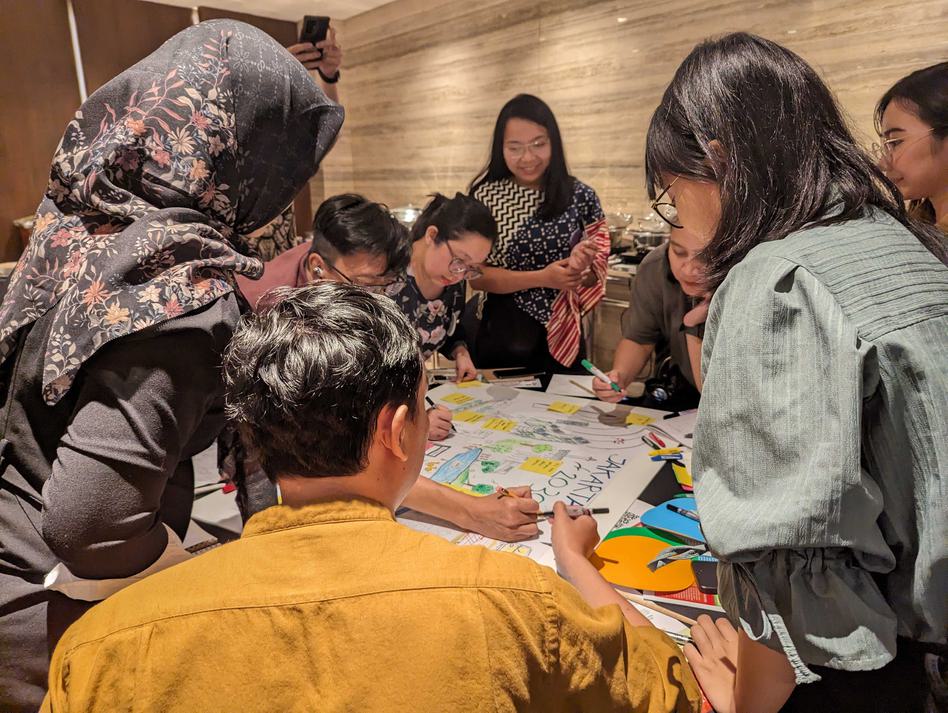
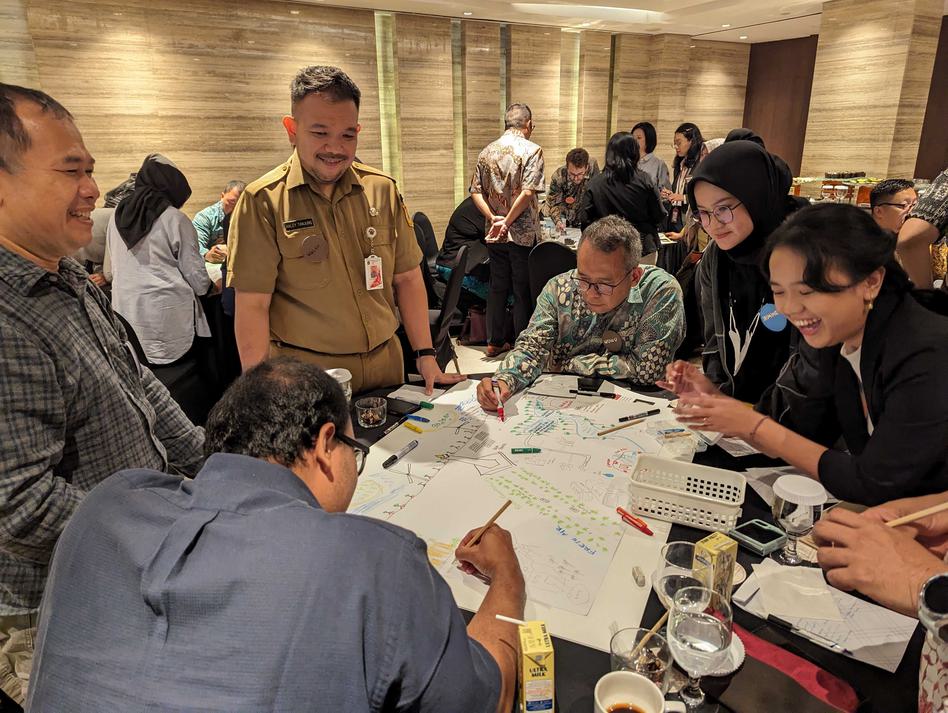
Participants sat in groups and envisioned the desirable picture of Jakarta in 2030. Each group consisted of participants from various backgrounds (public and non-public sectors).
This visioning workshop in Jakarta created six colourful, vivid, and inspiring visions (one per work group). These all share many elements and aspirations, highlighting a shared understanding of justice and sustainability. The main characteristics of the emergent visions were a city that:
- addresses head-on the sinking issue through a proper overhaul of the city’s water system, especially in North Jakarta
- has clean air by reducing the pollution from industry and vehicles
- has many and large green public spaces such as parks and pedestrian areas
- has decent and affordable housing for everyone
- includes a child-friendly built environment
- has a metropolitan governance decision-making agency
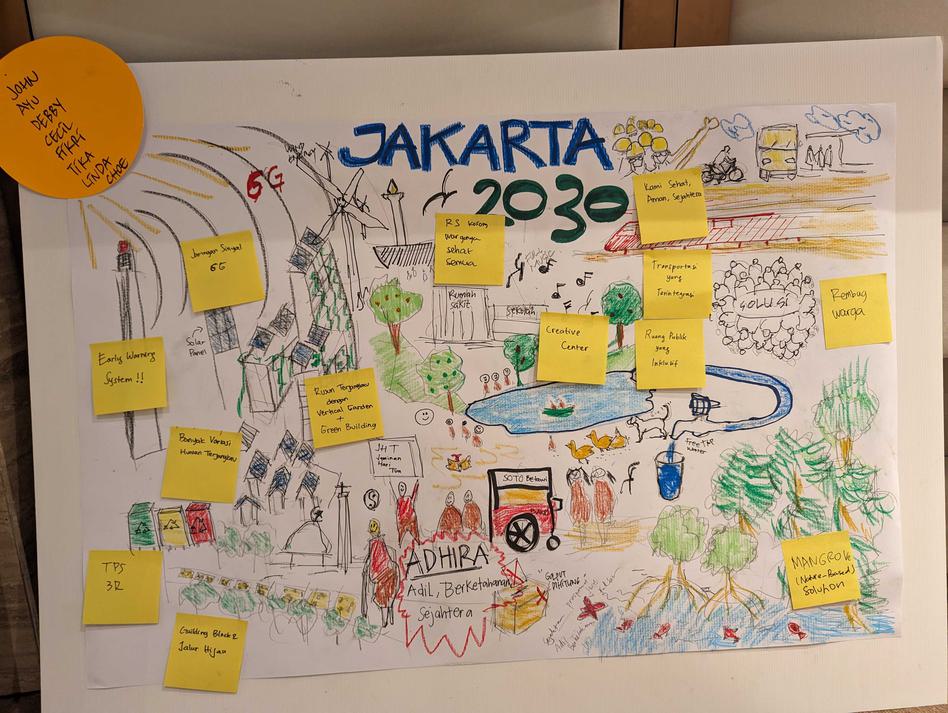
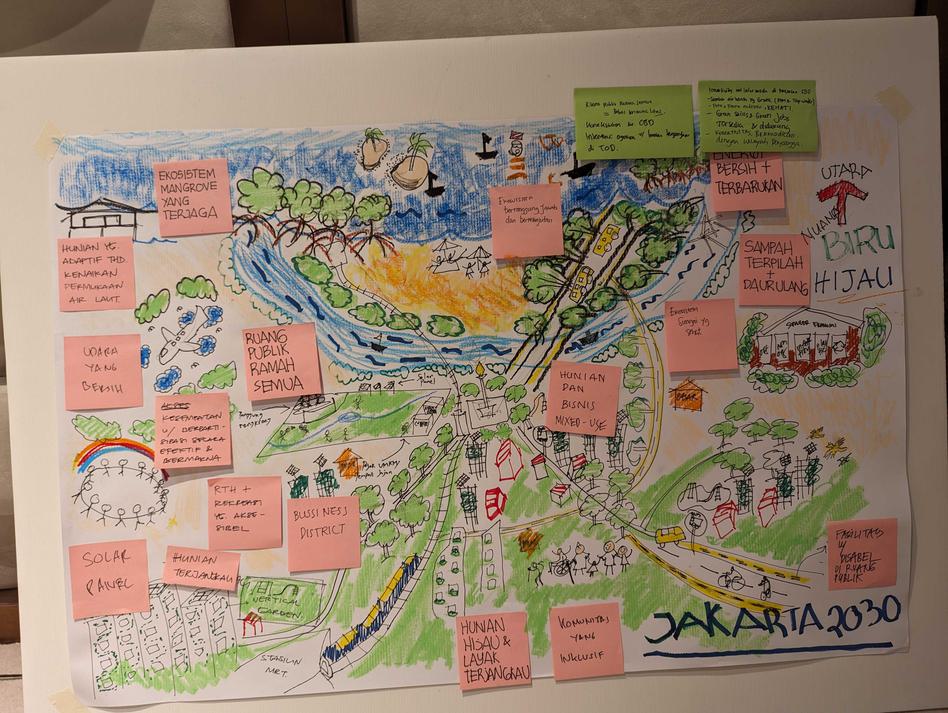
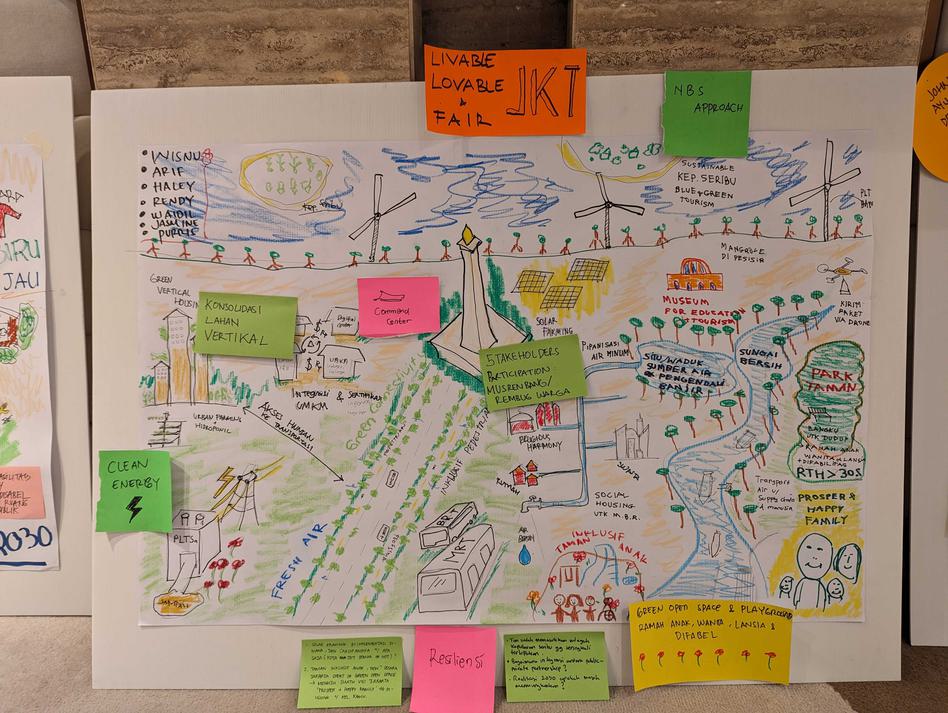
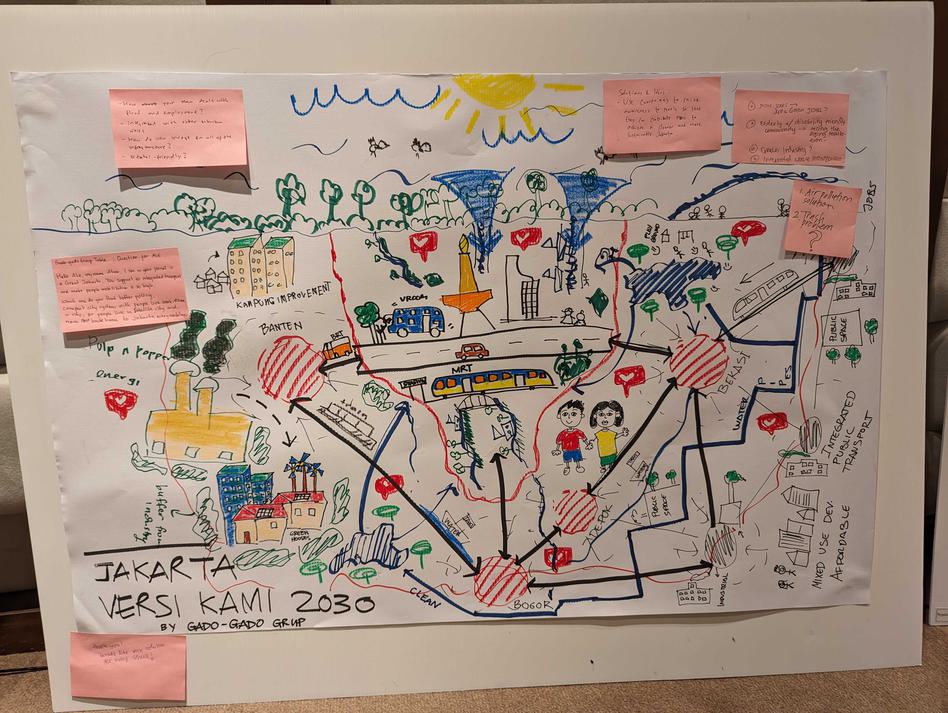
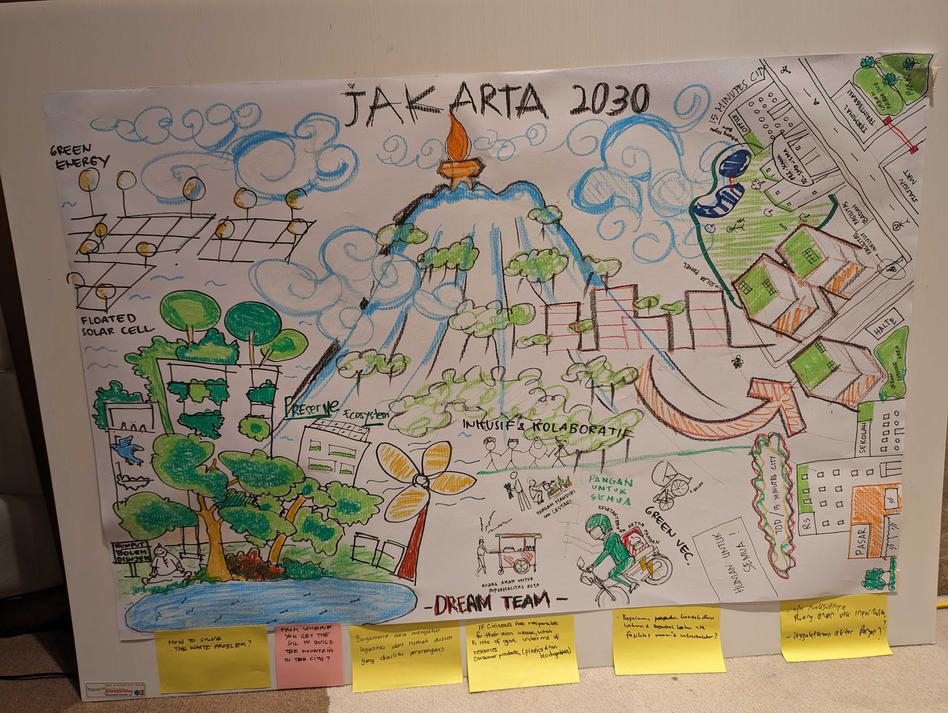
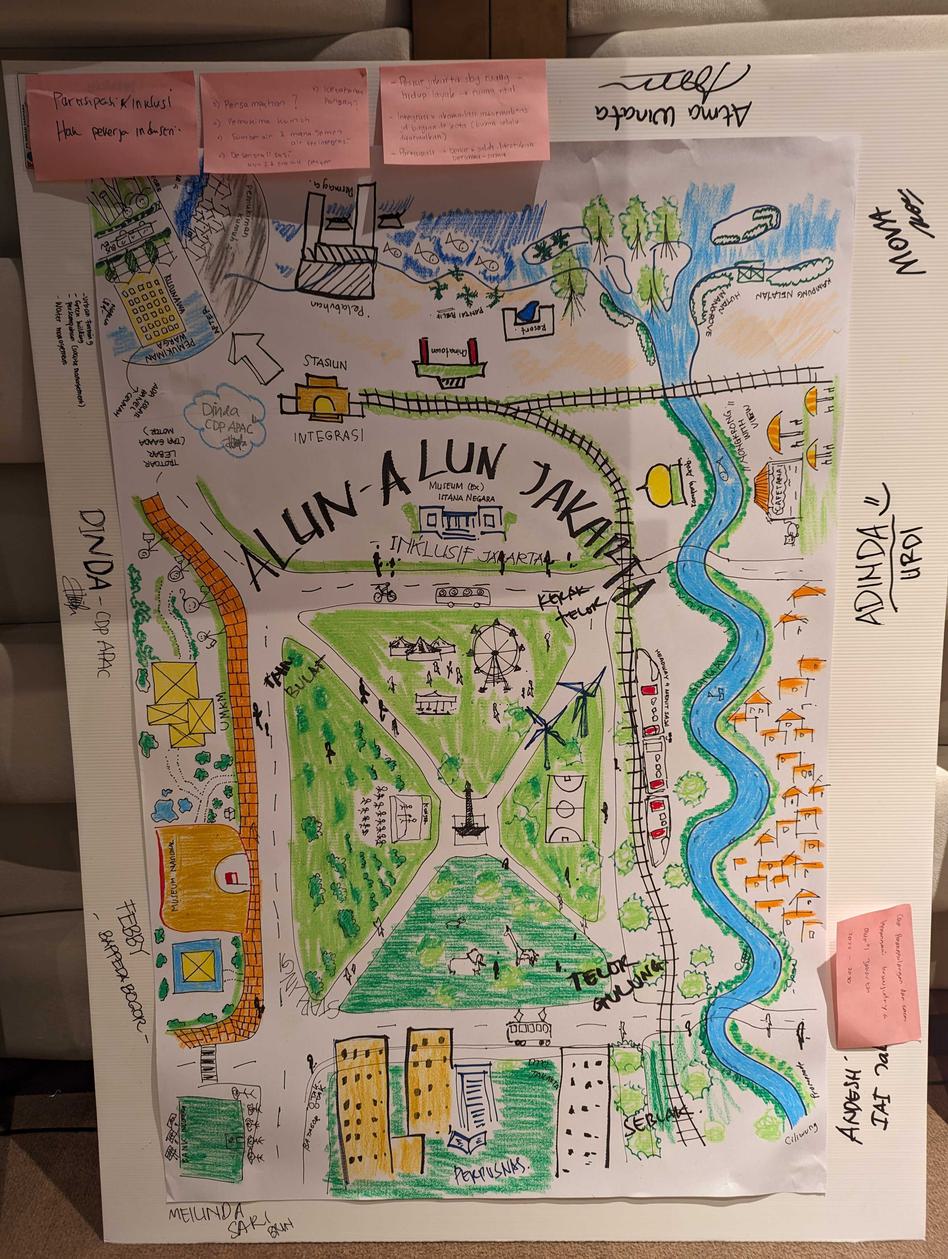
Participants also worked together to identify, brainstorm and discuss the challenges and opportunities to achieve their desired future for Jakarta.
Key challenges and opportunities
Public sector actors
- Challenges: policy making and development is lacking alignment between national and local government, lacking research process, data, and scientific method, and lacking integration between sectors as well as between metro core and periphery areas.
- Opportunities: a new metropolitan authority body is seen as an opportunity to integrate policy and development with the national government, across sectors, and between metro core and periphery areas. The momentum of new legislative framework development to determine the vision of Jakarta after the capital relocation can be seized to create this new authority and integrate the development.
Private sector actors
- Challenges: lack of awareness from the private sector especially on environment and human rights.
- Opportunities: the private sector has more flexibility to develop programs and allocate resources, however they need certainty and guidance from the government as a mutual collaboration between the two sectors.
Third sector actors
- Challenges: lack of alignment between research and other activities with the development agenda and dependency on donor organisations who fund the activities.
- Opportunities: third sector actors have a direct ability to interact with the communities, they are therefore able to provide bottom-up insights to both public and private sectors. While they could be a development partner to formulate the right policy and programs, third sector actors need to improve their accountability to be trusted in that role.
The workshop also led to an immaterial result: the creation of a community of practice of 50 leaders from different sectors who are truly interested and able to shape the future of Jakarta, and implement the vision of a just and sustainable city.
IHRB keeps working with local partners in Indonesia such as ICLEI, C40, Raoul Wallenberg Institute (RWI), Center for Regulation, Policy, and Governance (CRPG), and the Foundation for International Human Rights Standards (FIHRRST) to refine the main challenges and opportunities with the “Just Transition leaders” in Jakarta, prioritise shared priorities, and strengthen the pathways towards social justice in the built environment.
How do we make the vision a reality?
Table for workshopping specific barriers and opportunities
Cities of the future
Visions for a just and climate-resilient built environment

Syifa Hykmanto, Jakarta, Indonesia